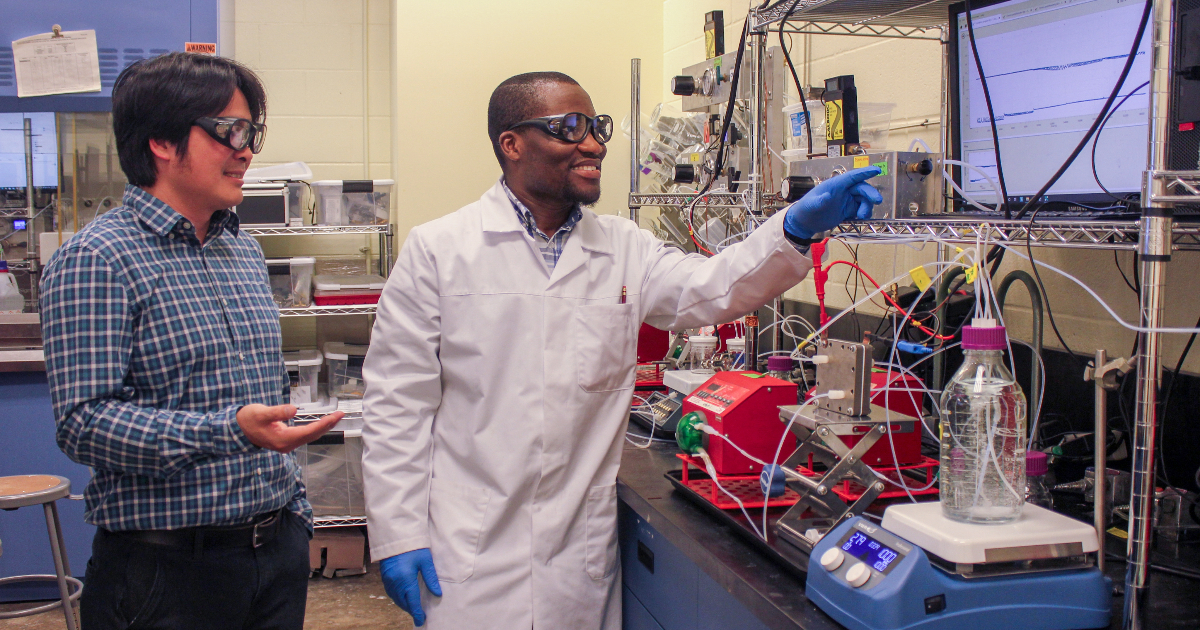
Cao Thang Dinh, an Assistant Professor in the Department of Chemical Engineering, is this year’s recipient of the Faculty of Engineering and Applied Science Excellence in Research Award.
The award recognizes outstanding contributions by faculty members to the research environment in Smith Engineering. Winners of the award receive a grant of $10,000 to be used to support their research. The award is intended to reward faculty for their research leadership and for fostering collaborative growth at the graduate level within the faculty. Only Assistant and Associate Professors from the five engineering departments are eligible and are nominated by heads of departments or by other faculty members.
Despite being an early researcher, Cao has shown exemplary growth in his time at Queen’s. His work has already gained recognition internationally including being named as a “Highly Cited Researcher” in the field of Chemistry since 2021 and recently winning Falling Walls Science Breakthrough of the Year in the Engineering and Technology category.
Cao’s research focuses on developing electrochemical processes for renewable fuel and chemical production from carbon dioxide (CO2), water and renewable electricity. This approach has three compelling advantages: (1) It offers a tool for reducing CO2 emissions: emitted CO2 is captured and converted to chemical feedstock for plastics and other materials and is permanently stored (carbon negative), while fuels generated this way are mostly carbon neutral because burning them simply rereleases the CO2 used to create them. (2) It provides a solution to large-scale and long-term storage of intermittent renewable energy: highly variable renewable electricity from wind and solar is transformed into gas and liquid fuels which can be readily stored and transported with current infrastructures. (3) It enables sustainable production of chemicals and materials: chemicals and materials such as plastics can be produced from sustainable resources (CO2 and water) instead of depleting fossil-based feedstocks.
Learn more about Cao’s research group, Refuel@Queen’s.